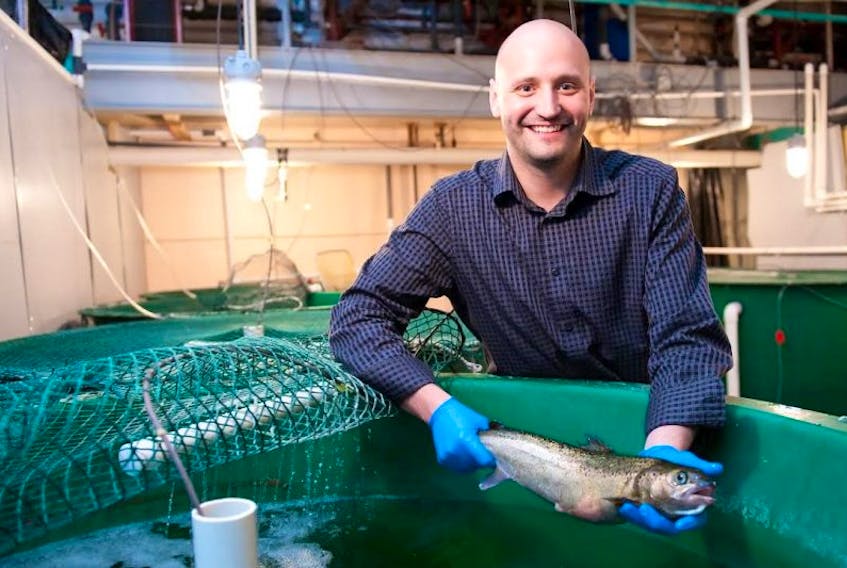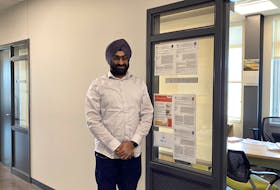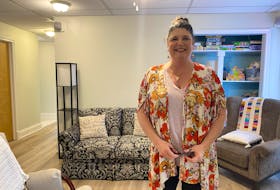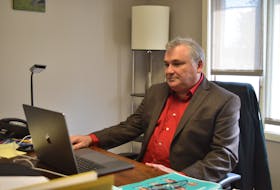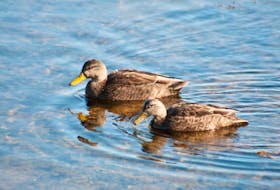The pan-Atlantic project has the AVC joining forces with Memorial University to use genomics and other biotechnologies in order to help the salmon aquaculture industry develop more disease-resistant brood stock and improved vaccines.
ACOA is investing $2.99 million in the project, while the Newfoundland and Labrador government is contributing $500,000.
The investments will enable the research team to work with Atlantic Canadian industry and academic partners to mitigate the impact of climate-related challenges on salmon aquaculture.
The project will focus on the predicted effects of warming coastal waters and improve methods for protecting salmon from pathogens that can lead to diseases, which can have significant negative economic impacts on the industry.
Mark Fast, an associate professor at the AVC, said the project will determine the underpinnings of Atlantic salmon’s ability to grow and thrive at higher temperatures, providing industry with genetic markers and tests so it can select and produce salmon more suited to this changing ocean environment.
“The global demand for healthy and sustainable protein sources continues to grow. The Atlantic salmon farming industry, in Canada and globally, continues to expand and adjust to fill this demand,” said Fast.
“This research is important also for identifying the genetic links between temperature changes, immunity, and disease in salmon. These links should provide information on how to develop more effective vaccines and reduce antibiotic use, again in the interest of enhancing the industry’s ability to produce a healthier, cheaper, and more environmentally sustainable salmon.”

